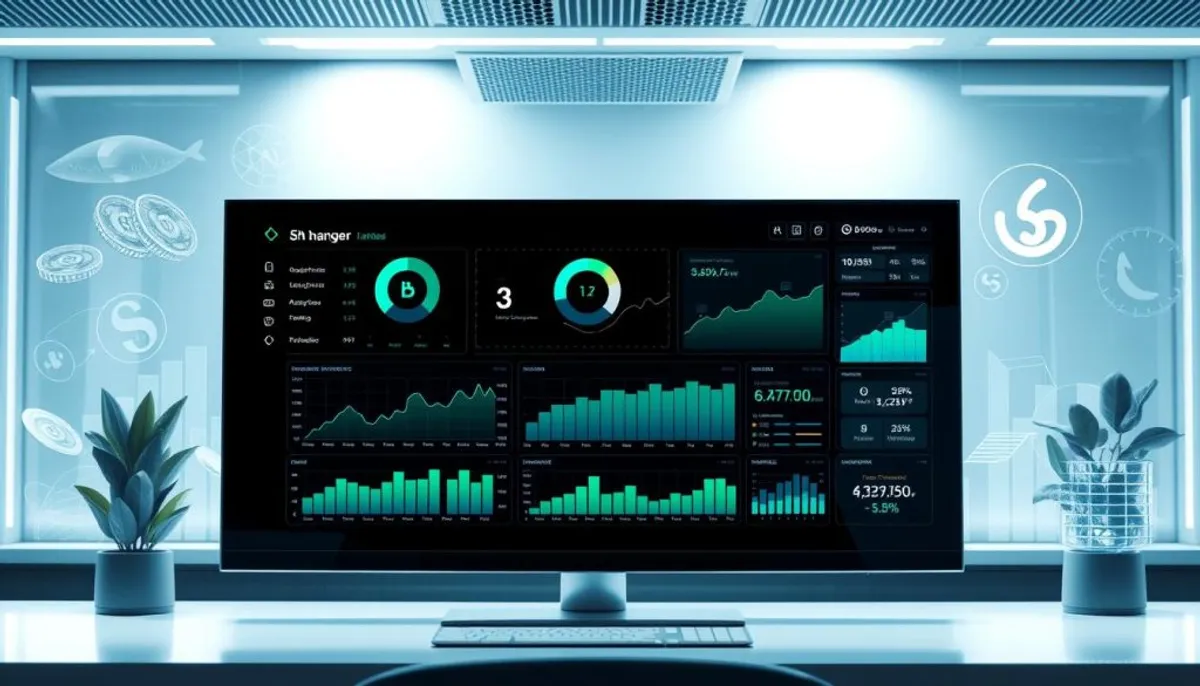Managing a business can be challenging, notably when clients delay payments. Debt recovery services act as a vital lifeline for enterprises facing unpaid invoices. These experts are adept in managing account receivables, ensuring businesses maintain a steady cash flow.
Outsourcing collections can significantly alter a company’s financial landscape. When internal efforts are insufficient, collection agencies intervene to reclaim owed funds. They employ effective tactics to engage debtors, securing payment, often for a fraction of the recovered sum.

Fees for these services typically span from 25% to 50% of the collected debts. Despite the cost, the benefits can outweigh the investment. Agencies serve as a bridge between negotiation and the expense of legal proceedings. They are generally more economical than pursuing debts through legal channels.
Selecting a reputable agency is paramount, ensuring they adhere to legal standards. Most jurisdictions mandate these firms to hold licenses. Engaging with a compliant agency safeguards your business from potential fines and preserves its reputation.
Key Takeaways
- Collection agencies charge 25-50% of recovered amounts
- They’re often a last resort after in-house efforts fail
- Most states require collection agencies to be licensed
- Agencies offer a balance between negotiation and litigation
- No guarantees exist for full debt recovery
- Consider consulting a local attorney before involving an agency
Understanding When It’s Time to Pursue Professional Debt Collection
Businesses often encounter difficulties when customers fail to meet payment deadlines. Recognizing the need for third-party debt collectors can significantly impact your financial well-being. Let’s examine the indicators that suggest it’s time to seek professional assistance with delinquent accounts.
Signs Your Business Needs Collection Help
Be vigilant for these warning signs that indicate the necessity of hiring a collection agency:
- Invoices are over 90 days past due
- Customers ignore your payment reminders
- You’re spending too much time chasing payments
- Your cash flow is suffering due to unpaid bills
Impact of Unpaid Invoices on Cash Flow
Unpaid invoices can severely impact your business. In 2020, U.S. companies experienced a 26% increase in bad debt due to the pandemic. Approximately 50% of business-to-business credit sales were affected by late payments. This can result in:
- Difficulty paying your own bills
- Inability to invest in growth
- Stress on your employees and operations
The 60-90 Day Payment Window
Experts generally agree that the 60-90 day mark is critical. If an invoice remains unpaid after this period, it’s often time to consider professional assistance. Here’s a breakdown of typical collection timelines:
| Days Past Due | Action | Success Rate |
|---|---|---|
| 1-30 | In-house reminders | High |
| 31-60 | Escalated in-house efforts | Moderate |
| 61-90 | Final notices | Low |
| 90+ | Professional collection agency | Varies |
Hiring professionals to handle defaulted payments can save you time and enhance your chances of recovering what you’re owed. It enables you to focus on running your business while experts handle the challenging task of debt collection.
The Process of Hiring a Collection Agency
Choosing the right collection agency for your commercial debt recovery needs is crucial. This process involves careful evaluation and consideration of several factors. It ensures you select a partner that aligns with your business goals and values.
Initial Assessment and Documentation
Begin by gathering all relevant information about your outstanding debts. This includes invoice dates, amounts owed, and any communication history with debtors. A thorough assessment helps agencies understand your situation. They can then develop effective debt resolution strategies.
Evaluating Agency Credentials
When selecting a collection agency, consider their specialization and compliance record. 95% of reputable agencies comply with Fair Debt Collection Practices Act regulations. Look for agencies with Errors and Omissions Insurance, which 85% of top firms carry. This protects your business from potential legal issues during the collection process.
Understanding Fee Structures
Collection agencies typically operate on contingency fees, ranging from 25% to 45% of the collected amount. Some may offer flat-rate options for certain types of debt. Compare fee structures and success rates to find the best value for your consumer collections needs.
| Fee Structure | Percentage Range | Best For |
|---|---|---|
| Contingency Fee | 25% – 45% | Most businesses |
| Flat Rate | Set amount per account | Small debts |
| Hybrid Model | Combination of flat fee and percentage | Complex cases |
By carefully evaluating these factors, you can select a collection agency. This agency maximizes your debt recovery efforts. It also maintains professional relationships with your customers.
How Collection Agencies Operate

Collection agencies are crucial in the debt recovery process. They intervene when accounts are 60 days or more overdue, following failed internal attempts. These firms employ various recovery techniques, including phone calls, emails, and letters, to reach out to delinquent customers.
The collection process initiates with a debt validation letter. This letter, sent within five days of the first contact, details the debt. Agencies then utilize special resources to evaluate the customer’s payment capacity, gathering information on their assets.
Here’s how collection agencies typically work:
- They act as middlemen between creditors and consumers
- They attempt to obtain full payment or negotiate settlements
- They help consumers dispute debts if necessary
- They follow strict governmental regulations and client standards
Collection agencies often operate on a contingency basis, charging a percentage of the collected debt. This fee can vary based on factors like account age and balance. Older accounts typically result in higher commission rates due to their increased difficulty in collection.
For large creditors, outsourcing to collection agencies can be cost-effective. These specialized firms offer operational efficiency, trained staff, and advanced technology for debt recovery. It is advisable to compare their expertise with your specific needs and conduct thorough vetting before hiring an agency.
Legal Requirements and Compliance Standards
Debt collection regulations are pivotal in safeguarding consumer rights and ensuring fair practices. The Fair Debt Collection Practices Act (FDCPA) serves as the cornerstone of federal legislation governing debt collection for personal, family, or household debts. It mandates strict guidelines for debt collectors, fostering FDCPA compliance and protecting consumers.
Fair Debt Collection Practices Act (FDCPA)
The FDCPA delineates specific rules for debt collectors. They are prohibited from contacting individuals before 8 a.m. or after 9 p.m. Collectors must cease communication if they are aware of legal representation. The act also prohibits the use of social media to publicly disclose someone’s debt.
State-Specific Regulations
Most states have enacted laws akin to the FDCPA, enhancing consumer protection. These state-specific regulations often provide additional safeguards and may impose stricter rules on debt collection practices within their jurisdictions.
Consumer Protection Laws
The Fair Credit Reporting Act ensures consumers can dispute inaccurate information reported by debt collectors. If facing collection issues, individuals can file complaints with the Consumer Financial Protection Bureau. These laws collectively aim to strike a balance between legitimate debt collection and consumer rights protection.
| Law | Key Protection |
|---|---|
| FDCPA | Limits contact hours, prohibits harassment |
| State Laws | Additional local protections |
| FCRA | Right to dispute inaccurate credit information |
Cost Considerations and Payment Models
Grasping the nuances of collection agency fees and debt recovery costs is paramount when selecting a debt collection service. The payment structures employed can significantly influence your financial outcomes and the efficiency of debt recovery.
Percentage-Based Fees
Contingency fee models are prevalent, where agencies charge a percentage of the debt they successfully collect. This percentage can span from 20% to 50% of the recovered amount. For example, a 20% fee on a $40,000 debt would leave you with $32,000 if the debt is fully collected. This model motivates agencies to maximize their recovery efforts.
Flat-Rate Collections
Flat-rate pricing is another option, tailored for businesses with consistent collection requirements. These rates can vary from $100 to $300 per hour, contingent upon the complexity of the case and the agency’s proficiency.
Debt Purchase Options
Agencies may also propose to purchase your debts outright. This approach ensures immediate payment but typically at a significantly reduced value compared to the total debt. It is advantageous for businesses seeking rapid financial relief, albeit at the expense of lower overall recovery.
| Payment Model | Typical Cost Range | Best For |
|---|---|---|
| Percentage-Based | 20-50% of collected debt | Businesses with varied debt amounts |
| Flat-Rate | $100-$300 per hour | Consistent collection needs |
| Debt Purchase | Varies (fraction of debt value) | Immediate cash flow needs |
In choosing a payment structure, it is essential to consider your business’s financial health and the specifics of your outstanding debts. Each model offers unique benefits, and the optimal choice hinges on your particular financial needs and recovery objectives.
ti3: A Modern Alternative to Traditional Collections
The realm of debt collection is witnessing a paradigm shift with the advent of innovative solutions. ti3 emerges as a pioneering platform, offering a novel methodology for managing overdue accounts. This SaaS platform introduces a blend of efficiency and automation into the collection process.

Automated Payment Reminders
ti3 leverages advanced technology to dispatch timely reminders. These automated notifications ensure that customers are consistently updated on their payment obligations. This strategy minimizes the necessity for manual interventions, thus conserving both time and resources.
Relationship-Preserving Collection Methods
Diverging from the conventional methods employed by traditional agencies, ti3 prioritizes the preservation of customer relationships. It employs a respectful communication strategy to address payment discrepancies. This approach enables businesses to maintain their client base while effectively recovering debts.
Cost-Effective Digital Solutions
ti3 presents cost-effective alternatives for enterprises across various scales. By integrating digital payment solutions, companies can significantly reduce their operational expenses and enhance their cash flow. The platform’s design facilitates a seamless collection process, eliminating the need for external intermediaries.
| Feature | Benefit |
|---|---|
| Automated Reminders | Timely follow-ups without manual effort |
| Customer-Friendly Approach | Preserves business relationships |
| Digital Payment Options | Faster payments and improved cash flow |
| SaaS Model | Scalable and cost-effective for businesses |
ti3 signifies a transformative shift in debt collection methodologies. It seamlessly merges SaaS debt collection with user-centric functionalities. This contemporary approach underscores that effective debt collection can coexist harmoniously with customer relationships.
Evaluating Collection Agency Success Rates
When selecting a collection agency, evaluating debt recovery success is paramount. The performance of collection agencies varies significantly, necessitating a thorough examination of recovery metrics prior to decision-making.
Industry leaders frequently surpass average recovery rates. For example, Summit Account Resolution achieves a 34.8% debt recovery rate, potentially escalating to 80% in certain scenarios. PSI, on the other hand, records a 38% recovery rate, exceeding the 20-25% industry benchmark.
- Years in business
- Compliance with industry regulations
- Specialization in your industry
- Cost structure
The table below compares top-performing agencies:
| Agency | Recovery Rate | Specialization |
|---|---|---|
| Summit Account Resolution | 34.8% (up to 80%) | Small Businesses |
| PSI | 38% | B2B |
| Rocket Receivables | 4x industry average | B2C |
| IC System | Varies | Tiered Service |
Timing is of the essence. Agencies advise initiating their services within 120 days of an account’s delinquency. This is because recovery rates diminish with the age of the debt.
Protecting Your Business Reputation During Collections
Ensuring a positive image while pursuing unpaid debts is essential for long-term success. Ethical debt collection practices are vital for managing business reputation and preserving customer relations.
Maintaining Professional Communications
Professional communication is paramount in debt collection. Opt for agencies that emphasize respectful interactions. A study reveals 70% of business owners deem an agency’s reputation crucial in their decision-making.
Ethical Collection Practices
Ethical practices are non-negotiable in debt collection. Agencies must adhere to the Fair Debt Collection Practices Act and local regulations. 85% of businesses prefer agencies that are bonded and insured, safeguarding against potential lawsuits.
Customer Relationship Management
Preserving customer relationships is paramount. Establish a feedback system for customers to share their experiences. 55% of business owners prioritize agencies with industry-specific experience for better service alignment.
| Factor | Importance |
|---|---|
| Agency Reputation | 70% |
| Nationwide License | 60% |
| Bonded and Insured | 85% |
| Professional Organization Membership | 90% |
| Industry-specific Experience | 55% |
By emphasizing these aspects, businesses can safeguard their reputation while efficiently managing debt collection processes.
Skip Tracing and Advanced Collection Techniques
Skip tracing services have become crucial for debt collectors aiming to track down elusive debtors. These advanced recovery methods employ sophisticated techniques to locate individuals who seem to have disappeared. By adopting the right strategies, skip tracing can notably enhance collection success rates.
- Information gathering from public records
- Data mining through specialized databases
- Analysis and verification of collected data
- Strategic contact attempts
These techniques are invaluable across various sectors, including debt collection, law enforcement, and legal services. By utilizing skip tracing, agencies gain access to exclusive databases containing comprehensive debtor information. This significantly boosts their chances of successful recoveries.
| Skip Tracing Benefits | Impact on Debt Recovery |
|---|---|
| Access to accurate contact details | Increases chances of reaching debtors |
| Up-to-date employment information | Facilitates wage garnishment options |
| Current financial status insights | Enables tailored repayment negotiations |
Integrating advanced technology into skip tracing processes enhances efficiency and precision. Well-trained staff in these techniques can significantly elevate debt recovery rates. This is achieved through better data analysis and lead identification skills.
Conclusion
Effective debt collection strategies are vital for managing business cash flow. With 82% of businesses failing due to cash flow issues, engaging a collection agency can be transformative. These agencies provide specialized accounts receivable solutions, enhancing your financial health in just three to four months.
Collection agencies possess expertise in credit management, skip tracing, and legal compliance. They can locate elusive debtors, offer strategic advice, and ensure legal adherence in your collection efforts. Outsourcing debt collection saves time and resources, boosting the likelihood of recovering delinquent debts.
It’s important to note that collection agencies do more than just collect debts. They can prevent bad debt by analyzing credit histories, provide premium audit services, and maintain detailed records for potential legal actions. By selecting the right agency or exploring modern alternatives like ti3, you can recover lost income, enhance cash flow, and maintain positive business relationships. This allows you to focus on your core operations.
RelatedRelated articles



